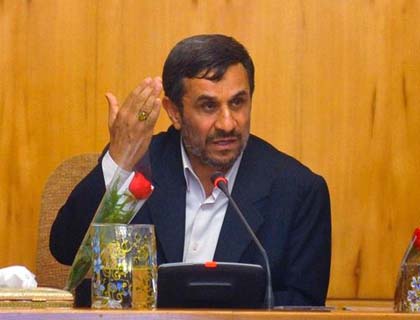TEHRAN – An Iranian court has barred a vice president and ally of Mahmoud Ahmadinejad from holding office for "violations" in a previous job, the semi-official Fars news agency said on Saturday, in a blow to the president.
Hamid Baqaie, one of eight vice presidents and seen as particularly close to Ahmadinejad, was banned from public office for four years by an administrative court, Fars reported. It said Baqaie intended to appeal.
"In a news conference today (Baqaie) was asked about the sentence handed down by the court and he confirmed it," Fars said.
The ruling, to deprive Baqaie of "any civil service responsibility," was "due to numerous violations" he had committed while head of Iran's Cultural Heritage and Tourism Organization, it added, giving no details of the violations.
Reuters was unable to contact Baqaie for comment.
The news comes amid mounting criticism of the president from various parts of the conservative elite, which backed his re-election in June 2009 in the face of a popular reform movement. Reformist demonstrators said the vote was rigged, which the government denies.
Last month, Supreme Leader Ayatollah Ali Khamenei overruled Ahmadinejad's decision to sack Intelligence Minister Heydar Moslehi — a rare public interference interpreted by analysts as an attempt to clip the president's wings.
On Friday, Fars reported that the state constitutional watchdog had overturned a move by Ahmedinejad to take over as caretaker oil minister a few days earlier.
The government has denied any suggestion of a growing rift between Iran's two most powerful figures. Conservatives have criticized some of Ahmadinejad's aides for embracing an "Iranian" school of Islam — an ideology which some see as inappropriately mixing religion and nationalism.
Baqaie, along with another senior aide, Esfandiar Rahim-Mashaie, was instrumental in persuading the British Museum to lend Iran the Cyrus Cylinder, a 2,500-year-old clay artifact from ancient Persia inscribed with what some have described as the world's first charter of human rights.
Some conservative clerics expressed unease with the fanfare with which the object — a potent symbol of Iran's pre-Islamic civilization — was greeted in Tehran.
Many analysts see a struggle for position among conservative factions ahead of parliamentary elections next year — in which leading reformists are unlikely to be permitted to stand — and the 2013 presidential race. (Reuters)

